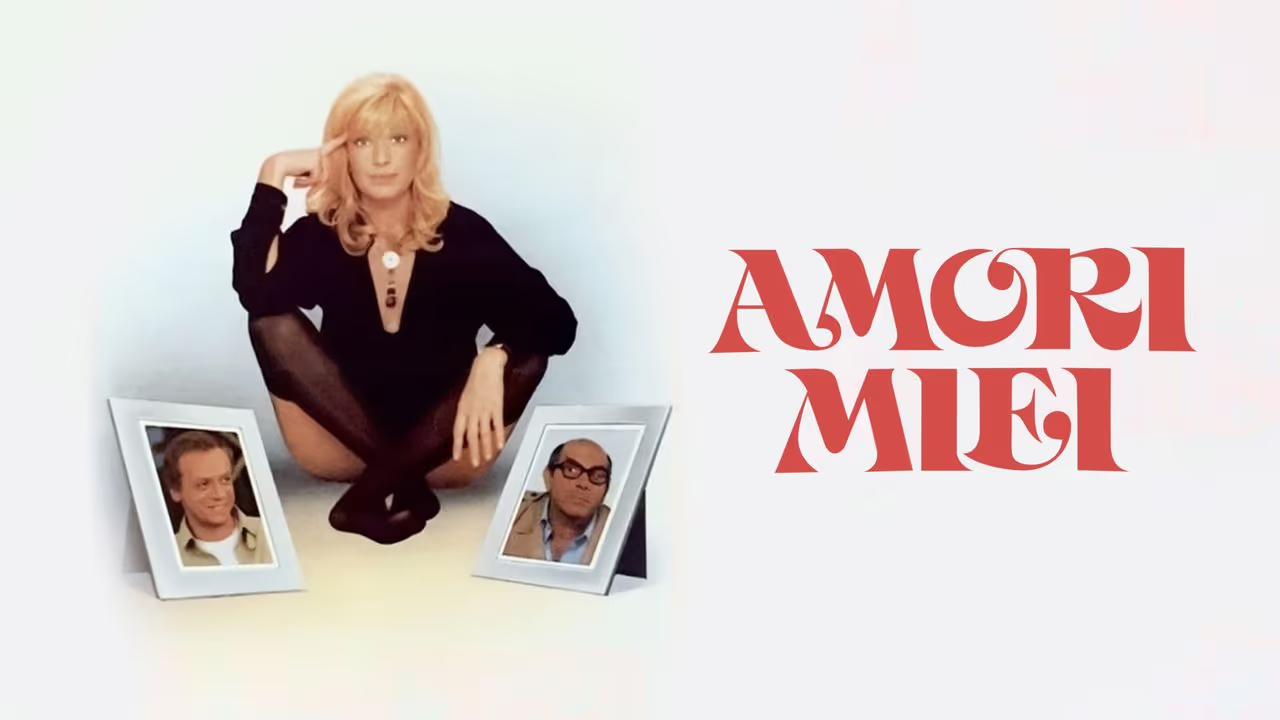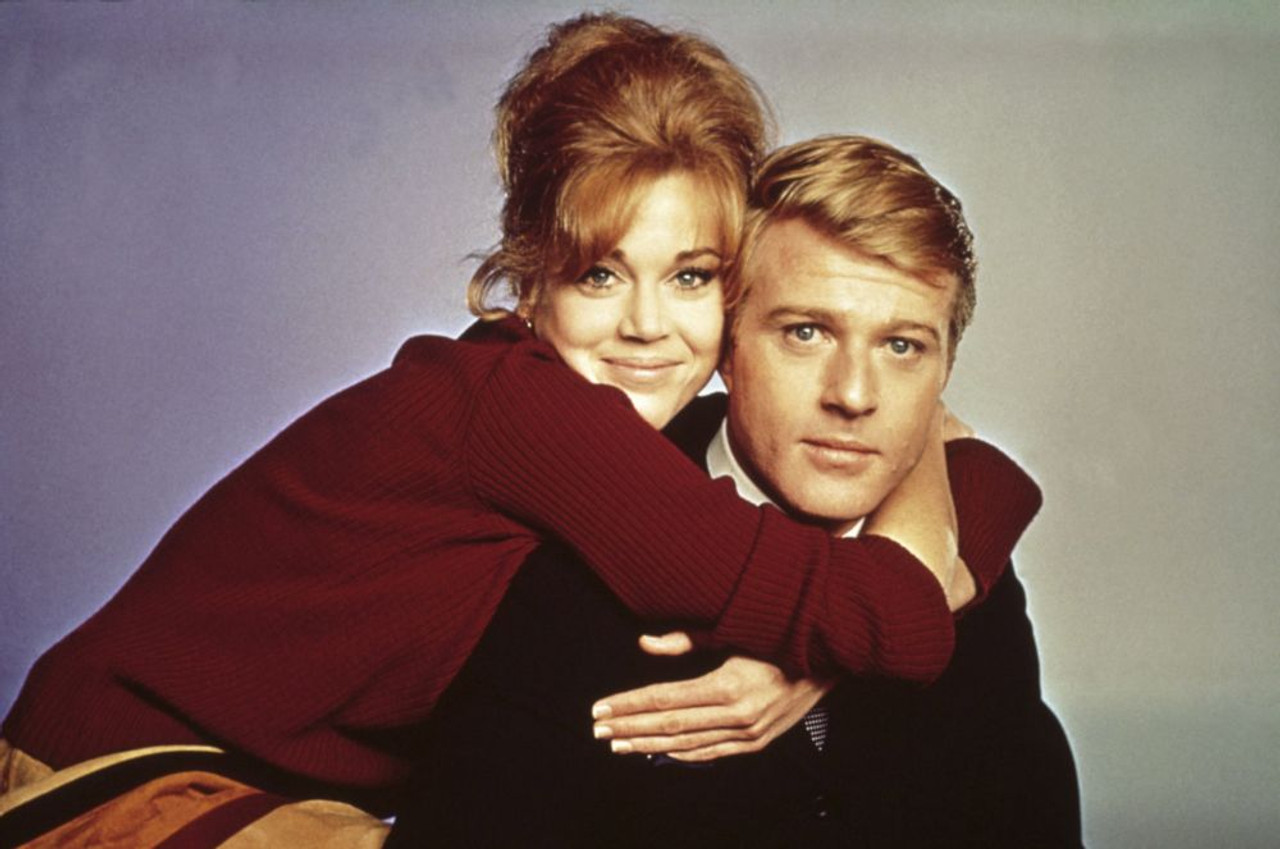nightglow.info – “My Loves” (original title: “Amori miei”) is a 1978 Italian romantic comedy-drama directed by Steno (Stefano Vanzina), a filmmaker known for his contributions to Italian cinema with his ability to balance humor and deeper emotional narratives. “My Loves” presents a delicate and insightful exploration of the complexities of romantic relationships, marriage, and personal identity. With a strong cast led by Monica Vitti, Johnny Dorelli, and Enrico Maria Salerno, the film offers a poignant yet lighthearted look at love from multiple perspectives.
Plot Overview
The story follows Anna, played by the iconic Monica Vitti, a free-spirited woman whose love life is anything but conventional. Anna is married to Carlo (Johnny Dorelli), a dependable yet traditional man who provides stability in her life. However, Anna also maintains a long-standing relationship with Marco (Enrico Maria Salerno), a more adventurous and passionate lover who represents her need for excitement and unpredictability.
The film’s central conflict revolves around Anna’s emotional struggle to reconcile these two contrasting relationships. She is torn between her love for Carlo, whose steady presence provides comfort and security, and her intense connection with Marco, whose passion brings out a different side of her. Both men represent different facets of Anna’s desires and needs, leaving her in a state of emotional limbo as she tries to navigate a non-traditional love life in a world that values commitment and monogamy.
As Anna juggles her relationships, she is faced with decisions about what she truly wants from love, what role societal expectations should play in her life, and how much she is willing to sacrifice for her personal happiness. “My Loves” uses this premise to explore the complexities of love, personal freedom, and the boundaries of romantic relationships.
Themes: Love, Freedom, and Identity
At its core, “My Loves” is a film about the search for personal identity within the context of love and relationships. Anna’s character is emblematic of the desire for both freedom and connection—a tension that defines much of her internal conflict throughout the film. Her relationships with Carlo and Marco are not only about love but also about what each man represents in her life. Carlo’s stability offers a sense of groundedness, while Marco’s wild energy feeds her desire for self-expression and autonomy.
The film also grapples with the theme of non-traditional relationships, challenging the conventional views of love and marriage that dominated Italian society at the time. Anna’s simultaneous involvement with two men is presented without judgment, allowing the audience to explore the idea that love and fulfillment can come in many forms. Through Anna’s journey, the film asks important questions about the nature of commitment, the possibility of polyamory, and whether it is possible to fully satisfy all emotional needs in a single relationship.
In addition to love, freedom is a key theme. Anna’s character is a reflection of a modern woman who refuses to conform to societal norms. Her desire to maintain relationships with both men speaks to her unwillingness to choose between the competing aspects of her identity. In this way, the film challenges traditional gender roles and examines the evolving nature of romantic relationships during the 1970s, a period marked by social and cultural changes.
Monica Vitti: A Captivating Lead Performance
Monica Vitti, known for her work in both dramatic and comedic roles, delivers a compelling performance as Anna. Vitti’s ability to balance emotional vulnerability with moments of humor and lightheartedness makes Anna a sympathetic and relatable character. Her portrayal captures the complexity of a woman torn between two very different men, each of whom brings out different facets of her personality.
Vitti’s comedic timing and charm shine through in scenes that require a lighter touch, while her emotional depth is evident in moments of introspection as Anna grapples with her desires and fears. She skillfully conveys the internal struggle of a woman who is simultaneously seeking love, independence, and fulfillment.
Johnny Dorelli and Enrico Maria Salerno provide strong support as Carlo and Marco, respectively. Dorelli plays Carlo with warmth and sincerity, making him a character that the audience can empathize with despite his traditional views on marriage and love. Salerno, on the other hand, brings intensity and passion to the role of Marco, making him an intriguing counterpart to Carlo’s steadiness. Together, the two actors create a compelling dynamic with Vitti, driving the film’s emotional and romantic tension.
Direction and Cinematic Style
Director Steno uses his signature blend of humor and drama to explore the film’s themes, keeping the tone light while addressing deeper emotional truths. The film’s pacing allows for a balance between comedic situations and moments of introspection, giving the characters room to develop and evolve over the course of the story.
Visually, “My Loves” captures the essence of late-1970s Italy, with its urban settings, vibrant fashion, and lively atmosphere. The film’s cinematography emphasizes the contrasts in Anna’s life, from the comfort and simplicity of her home with Carlo to the excitement and unpredictability she experiences with Marco. This visual contrast mirrors Anna’s internal struggle as she moves between two worlds.
Steno’s direction ensures that the film remains engaging and entertaining, while also allowing for a deeper exploration of its characters’ emotional journeys. His ability to blend humor with more serious themes is a hallmark of his filmmaking style, and “My Loves” is no exception.
Reception and Legacy
Upon its release in 1978, “My Loves” was well-received by Italian audiences and critics alike. The film’s exploration of non-traditional relationships and its portrayal of a strong, independent female protagonist resonated with viewers during a time of cultural and social shifts in Italy.
Monica Vitti’s performance was particularly praised, cementing her status as one of Italy’s most beloved actresses. Her portrayal of Anna, a woman who refuses to conform to societal expectations, remains one of her most memorable roles.
While “My Loves” may not have achieved the same level of international fame as some of Steno’s other works, it has since gained a loyal following and is considered a notable entry in the canon of Italian romantic comedies. Its themes of love, freedom, and personal identity continue to resonate with modern audiences, making it a timeless exploration of the complexities of relationships.
Conclusion
“My Loves” (1978) is a charming and thought-provoking film that offers a unique take on love, commitment, and personal identity. With a standout performance by Monica Vitti and the deft direction of Steno, the film explores the emotional and romantic struggles of a woman torn between two very different men. Through its exploration of non-traditional relationships and its themes of freedom and self-discovery, “My Loves” remains a relevant and engaging piece of Italian cinema, inviting audiences to reflect on the evolving nature of love and human connection.

